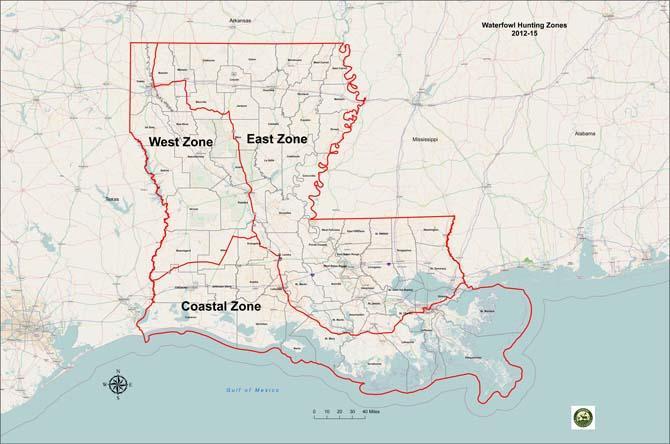Waterfowl hunters now have the opportunity to comment on several aspects of the 2012-13 duck season via the Louisiana Department of Wildlife and Fisheries Waterfowl Hunter Opinion Survey, which will be available until July 1.
Two-thousand five hundred randomly selected hunters will receive questions through mail, and an identical Internet survey will be open to all hunters on the LDWF website.
All hunters who participate in the survey will be entered into a drawing for a chance to win a September teal season hunt for two at the White Lake Wetlands Conservation Area, a Cabela’s Gore-Tex wading jacket or a Remington 887 Nitro-Mag 12-gauge shotgun.
The survey is being conducted for LDWF by officials within the University’s School of Renewable Natural Resources to gather hunters’ opinions on the past season. The survey will also help LDWF to make informed decisions about next year’s regulations, said LDWF waterfowl study leader Larry Reynolds.
“Last year, for the first time in 36 years, we had three waterfowl hunting zones instead of only two,” he said. “My primary purpose was to get some feedback from hunters on that change in waterfowl hunting zones.”
Hunters can expect questions ranging from demographics to where, when and how often they hunted.
“Basically we just want to ask hunters, ‘What do you want,’” said RNR associate professor Frank Rohwer.
Rohwer is conducting the research for LDWF and has done similar studies in previous years, he said.
The survey is also a continuation of a cooperative human-dimensions research project by RNR doctoral student Luke Laborde that focuses on what hunters want in the Mississippi Flyway, Rohwer said.
The Mississippi Flyway is a migration route that follows the Mississippi River from Canada to Louisiana and is used by large numbers of waterfowl, covering about 11 states, Laborde said.
Laborde is using data collected from this survey, as well as other previous surveys and research, to conduct his dissertation.
“What I’m really looking at is linkages of hunting participation to motivations and experience preferences of waterfowl hunters – who, what, when, why, [and] how they like to hunt,” he said.
LDWF and the School of RNR are also uncovering findings in survey methodology, Reynolds said.
Researchers found that hunters who participate in Internet surveys are avid waterfowl hunters and more eager to answer questions about season changes, while hunters who received the random mail survey – a more expensive survey method – may not hunt as often.
Reynolds said Internet survey questions therefore can be biased when they are posed concerning number of ducks harvested or days spent in the field.
“But their answers to attitudinal questions – questions about satisfaction, what they think about certain policies, what their preferences are for season dates – are almost identical to our random sample as long as we get a large enough sample size,” he said.
LDWF is using the current survey to understand “more cost effective ways of getting that hunter opinion information,” Reynolds said.
Reynolds said LDWF will sift through the data collected over the three-month period to look for any consensus on certain issues, or areas where changes can be made.
The proposed season dates will be discussed at the July meeting with the Louisiana Wildlife and Fisheries Commission, and season date changes or alterations to the waterfowl regulations will be made at the August LWFC meeting, Reynolds said.





